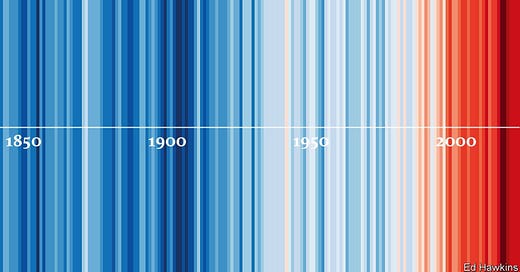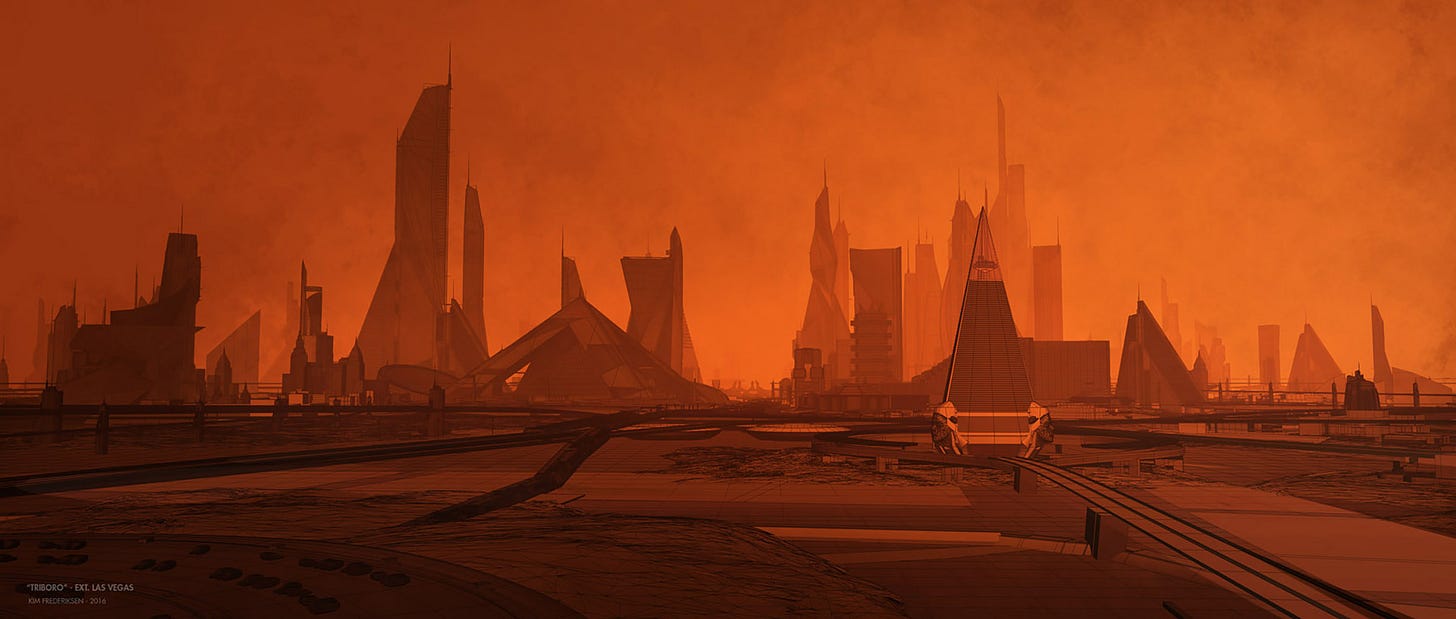☀ Here's the speech Joe Biden should give on the climate 'emergency'
It's time America and the world realize that we have a clean-energy problem, not a global warming problem
Item: President Joe Biden announced new executive steps to combat climate change on Wednesday, but fell short of issuing a climate emergency declaration as some Democrats had called for amid stalled negotiations over major environmental legislation in Washington. “Since Congress is not acting as it should...this is an emergency and I will look at it that way,” Biden said. “As president I’ll use my executive powers to combat the climate crisis in the absence of executive action.”.. . The orders come as the White House struggles to salvage Biden’s aggressive climate agenda after talks with West Virginia Sen. Joe Manchin stalled last week. The administration also faced an additional setback for its climate agenda after a major Supreme Court ruling last month limited the federal government’s authority to impose regulations to cut carbon emissions from power plants. - CNBC, July 20, 2022
“My fellow Americans, I’m going to be straight with you. It’s too darn hot today for any malarkey. It’s hot and it’s going to get hotter. We live in a warming world due to the steady build-up of carbon dioxide in Earth’s atmosphere. We did this. A serious conversation about what America and the world should do next must begin with an acceptance of this basic reality.
“Although climate scientists don’t know everything, they know a whole lot. For instance, they’ve become more confident in their conclusions about global warming thanks to more data and more sophisticated computer modeling using that data. These models are worth paying attention to. A recent study that looked at what they’ve been forecasting since the 1970s found that almost all of them made predictions that ended up landing within their margin of error.
“The good news (and yes, folks, there is some) is that the most extreme potential heating — 10 or 12 degrees or even more — from climate change now seems less likely. Which is no small thing. If such heating were to happen, half the global population might be living in a region rendered uninhabitable without air conditioning for at least some part of the year.
“But, unfortunately, there’s also plenty of bad news. Climate experts think the best-case scenarios, ones that see merely minimal heating, are also less likely. So we’re almost certainly looking at a hotter Earth with rising seas and an increasing number of severe weather events: terrible storms, brutal heat waves, withering droughts. There’s also a non-zero chance that some pretty scary worst-case scenarios could eventually happen. Again, these risks are small. But we should not ignore what scientists call ‘tail risks.’ After all, humanity is doing something new to its home.
“This is the climate reality that confronts all of humanity. Some extreme environmentalists even call this climate reality an ‘emergency’ — one that requires radical global action such as rich nations living more poorly and poor ones never getting rich. They tell us we must learn to live with less and teach our children that their lives and those of future generations will be less prosperous than ours have been. They tell a story of lowered expectations.
“It is not a new story, however. I was first elected to the United States Senate in 1972. That same year, an international think tank published The Limits to Growth, a report that claimed humanity was headed toward environmental catastrophe and economic collapse: Too many people were consuming too much of our planet. As the authors of the best-selling report wrote back then, “Taking no action to solve these problems is equivalent to taking strong action. Every day of continued exponential growth brings the world system closer to the ultimate limits of that growth. A decision to do nothing is a decision to increase the risk of collapse.” And by the way, climate change back then wasn’t even on the agenda.
“The world has not collapsed, you might have noticed. It’s richer than it was 50 years ago. There are fewer people in extreme poverty, and fewer people suffering extreme hunger. And, more to the point, there is no evidence that we are running out of Earth through resource depletion. That said, climate change is definitely on the agenda. Taking no action to tackle this problem is, indeed, the ‘equivalent of taking strong action’ of the worst sort. That part the think tank got right.
“But economic growth, driven by the wonders of modern technological progress, isn’t the problem here — it’s the solution. And that’s because, fundamentally, we really don’t have a climate ‘emergency’ or even a climate ‘challenge.’
“What we have is a massive clean-energy problem, one that predates the recent energy shock caused by Russia’s invasion of Ukraine. And this problem has two aspects. First, as the Our World in Data organization puts it, ‘The world lacks safe, low-carbon, and cheap large-scale energy alternatives to fossil fuels. Second, hundreds of millions of people lack access to sufficient energy entirely, with terrible consequences to themselves and the environment.’
“If a richer and more technologically capable world were to generate abundant, carbon-free energy, we could begin to tell ourselves a different story. This would be a story not just about a cooler climate, but about a more prosperous humanity with more opportunity-filled lives.
“Imagine a world with substantially less poverty, such that a country like Ethiopia became as rich as Denmark. Such a transformation would require a global economy at least five times as big as today, the folks at OWID say. Imagine a world where we could totally electrify the global economy, inexpensively desalinate seawater, power megamachines to pull carbon from the sky and reverse climate change, and do a whole host of things that our brilliant entrepreneurs and technologists haven’t even thought of yet.
“All that’s going to require a lot more low-carbon and carbon-free energy. And a lot more innovation. So here’s what I’m proposing …”
Well, regular Faster, Please! readers know the rest: a carbon tax that at least in part replaces the corporate income tax; revisiting 1970s-era environmental regulations that make it hard to build new clean energy sources and infrastructure; modernizing current regulations, especially those affecting the licensing of new nuclear fission technology and the permitting of geothermal sites; greater federal R&D for emerging energy technologies such as fusion and advanced geothermal, as well as climate engineering — all of it part of a concerted effort to generate abundant clean energy ASAP. There is no other realistic path toward a more settled climate and greater global wealth.

Back in 1988, scientists, environmental activists, and politicians gathered in Toronto to call for a 20 percent reduction in carbon dioxide emissions by 2005. Instead, as The Economist notes, emissions in 2005 were 34 percent higher. By 2017 they were 22 percent higher still. And only the most optimistic greens think the US will fulfill Biden’s pledge to slash greenhouse gas emissions by half by decade’s end and reach net-zero emissions by 2050. Scare stories and calls for economic pain and stagnation clearly aren’t working. Maybe it’s time to try something else.
Thanks for reading this far! Just a quick note for first-time visitors and free subscribers. In my twice-weekly issues for paid subscribers, I typically also include a short, sharp Q&A with an interesting thinker, in addition to a long-read essay. Here are some recent examples of those interviewees:
Economist Tyler Cowen on innovation, China, talent, and Elon Musk
Existential risk expert Toby Ord on humanity’s omist Erik Brynjolfsson on the AI economy
Silicon Valley historian Margaret O’Mara on the rise of Silicon Valley
Innovation expert Matt Ridley on rational optimism and how innovation works
More From Less author Andrew McAfee on economic growth and the environment
A Culture of Growth author and economic historian Joel Mokyr on the origins of economic growth
Physicist and The Star Builders author Arthur Turrell on the state of nuclear fusion
Economist Stan Veuger on the social and political impact of the China trade shock
AI expert Avi Goldfarb on machine learning as a general purpose technology
Researcher Alec Stapp on accelerating progress through public policy








I agree with your statement. But I would add two things.
One, it's pretty obvious that efficiency improvement in ground based solar and wind combined with 'going green' won't come close to meeting the energy needs of a world in 2050 with ~10 billion people where the average energy use is even half what the average American uses today.
Second, you shouldn't exclude small modular nuclear (SMN) or space based solar from your list of technological solutions. SMN is commercial today - one province in Canada just announced they are contracting for two. And space based solar is being worked on as well and has benefited by SpaceX driving down the cost of putting payloads in space.
It's frustrating not to hear the fact that going green can't work ever mentioned.
If Biden (or anyone else) gave a speech on climate policy and mentioned a carbon tax, the headline would scream CARBON TAX drowning out all other components of the speech. I find conservatives suggesting a carbon tax to be disingenuous at best. What, if any, non-obscure Republican entity or elected politician is actively pushing for a carbon tax?